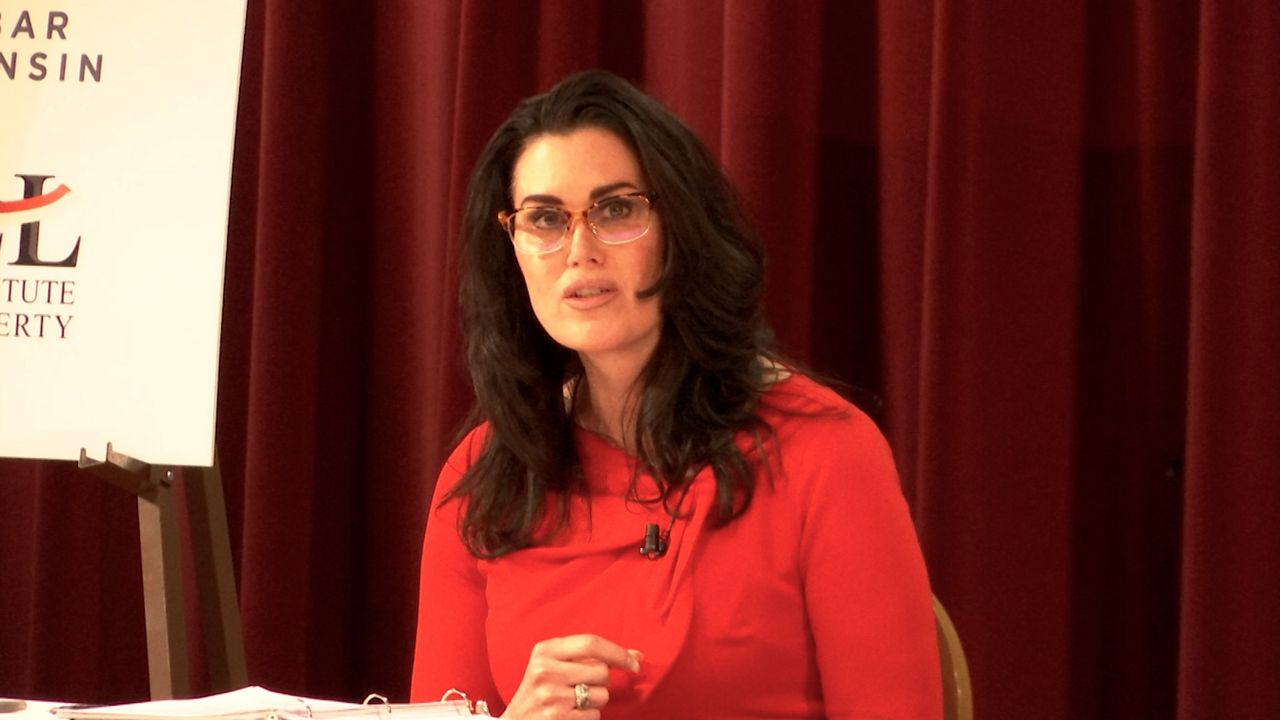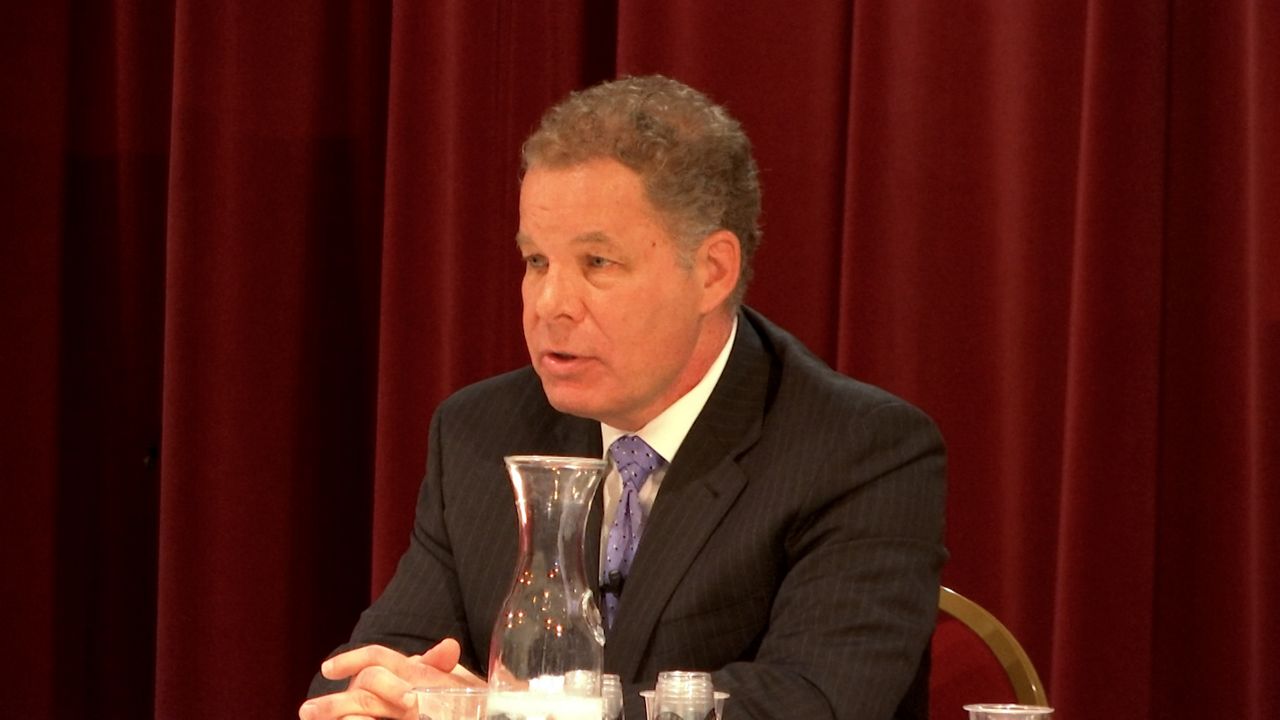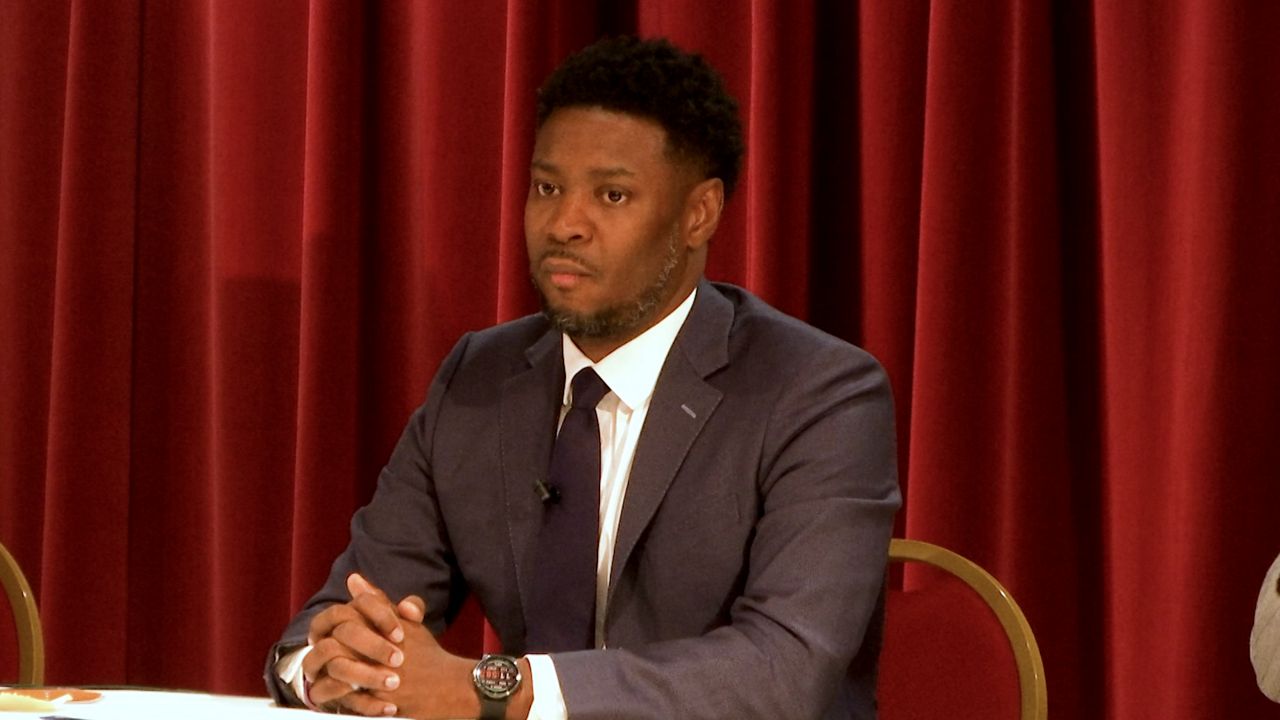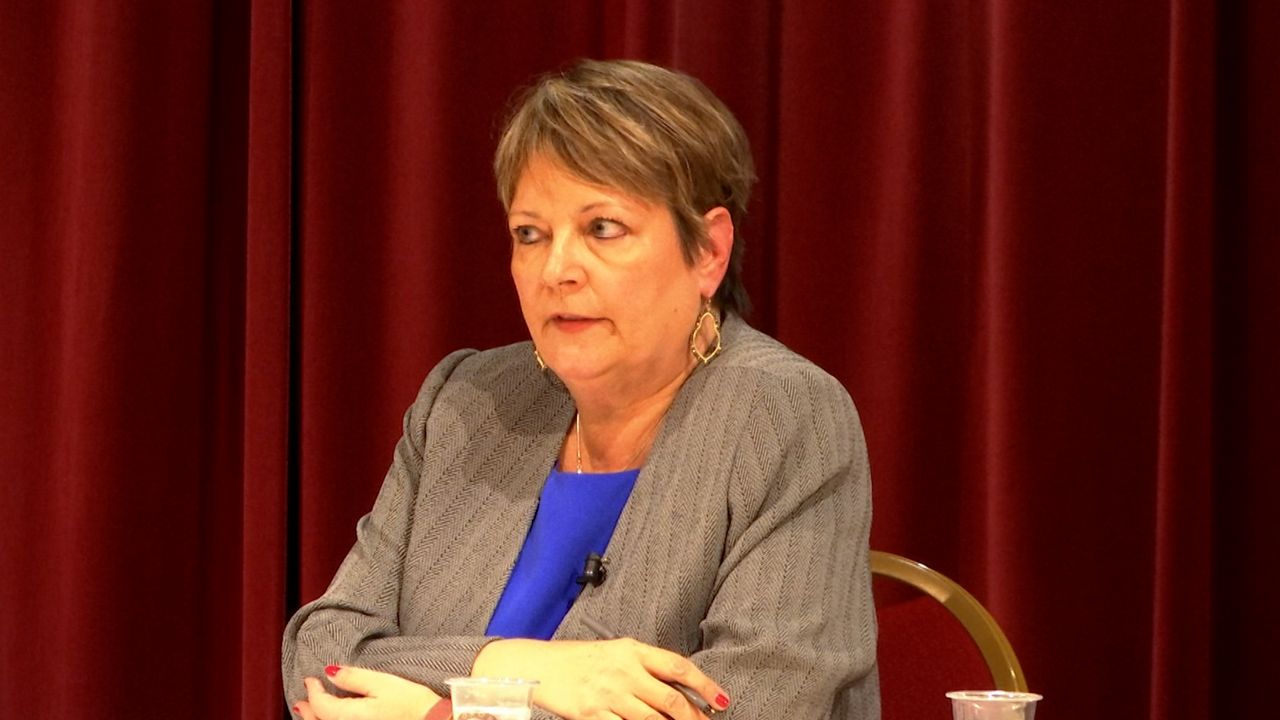MADISON, Wis. — Four candidates vying for a seat on the Wisconsin Supreme Court faced off in an election forum Monday hosted by WisPolitics.
Waukesha Co. Judge Jennifer Dorow, former Wisconsin Supreme Court Justice Dan Kelly, Dane Co. Judge Everett Mitchell and Milwaukee Co. Judge Janet Protasiewicz all shared their stances on a number of issues ranging from legislative maps to recusal and impartiality.
Though the race is technically non-partisan, voters will decide the ideological balance of the court this spring. Dorow and Kelly are conservatives, while Mitchell and Protasiewicz are liberal-leaning.
With millions of dollars expected to be poured into the race on behalf of both parties, many Wisconsinites may wonder how the candidates intend to remain impartial and not become a reliable vote to those who supported them.
Protasiewicz: “Even though I am a career prosecutor, I side with the person or party who I think is most appropriate. Sometimes, I do what the state wants. Sometimes I do what the defense wants, but you never know. I follow the law. I uphold the Constitution, and that is what I plan to do.”
Dorow: “The core of my judicial approach has always been fairness and impartiality. The people who appear before a judge expect and deserve this. I say they should demand this. For the past 11 years, I have administered justice fairly, faithfully and impartially.”

Kelly: “Politics is poison to the work of the court. Everybody who comes to the court, regardless of what they might tell you, everybody has political beliefs. The question is whether you can set them aside to do the work of the court. In order to do that, you need to have a methodology developed and ready at hand that you can apply consistently every single day.”
Mitchell: “A judge who is committed to the rule of law, committed to fairness in our state, will make sure that they understand when their person comes in, you don't ask them, 'Are you Republican?' 'Are you Democrat?' 'Are you Green Party?' 'Are you Independent?' They are Wisconsinites, and they deserve to have their case heard without any bias whatsoever.”
In the past, the State Supreme Court has rejected petitions for justices to set a recusal standard for cases in which a party has contributed to their campaign. Basically, the court has said it is up to the individual justices to decide whether they can be impartial.
Candidates were asked if such guidelines are sufficient or if more concrete standards are necessary.
Dorow: “First and foremost, my integrity cannot be bought by anyone. We have rules and statutes already that address recusal, and they are important. I would, of course, follow them and apply them to the facts of any given case. At the same time, I know that recusal is often used as a weapon by litigants to secure the judges they prefer.”
Kelly: “I understand that all of the authority to create and maintain governments in the state of Wisconsin comes from you — we the people of Wisconsin. It comes to us only as a loan, and that loan is mediated by the Constitution that the people of Wisconsin decided to create and maintain. The point of this is that the question of recusal is for the people of Wisconsin to decide if they believe that there should be new rules or different rules governing how that is handled.”

Mitchell: “The Wisconsin Supreme Court seal has a hand that is holding the scale, and that hand that is holding the scale is meant to say that there is a certain balance that judges and justices are supposed to have when it comes to thinking about what justice should look like in every case, so when I think about recusal, I think about that symbol. That when a judge's hand starts to tilt the balance in a different direction, he or she needs to make sure that they recuse themselves.”
Protasiewicz: “I think we need a recusal rule. I think we have two distinct scenarios that we have been talking about. Sure, we all go into our courtrooms, and we all know many of the people on our cases. We always disclose, I know the plaintiff; I know the respondent; I know the defendant; I know the defendant's attorney is one of my court commissioners. We always disclose that. But I take it a step further when it comes to the political contributions. I think that due to the extreme partisanship, and the amount of money that comes into races like this, we absolutely need a recusal rule.”
With ideological control up for grabs, the outcome of the spring election could also shape the future of political boundaries and voter rights through cases likely to come before the court.
Candidates were also asked Monday if the Wisconsin Supreme Court correctly instructed political parties to submit maps drawn with a least changed approach and if the decision to ultimately side with the districts laid out by the Republican-controlled legislature was appropriate.

While some candidates raised concerns about judicial activism and maintaining the separation of powers between branches of government, others felt the courts were asked to answer questions they normally would not because democracy has become dysfunctional.
Protasiewicz: “I don't think you could sell to any reasonable person that the maps are fair. The least changed approach, I mean, the idea of it might sound good to people. I see no basis for it in the Constitution — no basis in case law.”

Dorow: “There is talk about further challenges, so I will not put myself in a position to pre-judge anything. As with any case, I will listen to the challenge and I will apply the law to the facts at hand.”
Kelly: “If we are going to make sure that our courts exist wholly and only for the purpose of deciding legal questions, then we can't let our values — our own personal values — or our personal politics, reorient what the different branches of government are supposed to do.”
Mitchell: “I think in order to restore people's faith in our democracy, what we need to do is ensure that legislative districts are drawn in a fair, non-partisan way. I think the way how extremely partisan maps our maps have gotten, we are saying to folks, both on the left and to the right, that your voices do not matter in these districts.”



